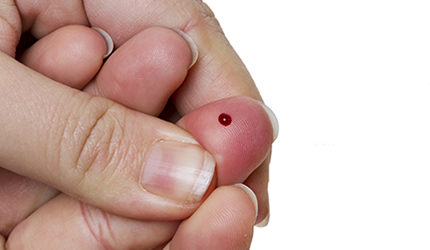
Home » FDA Releases Guidance for Blood Glucose Monitoring Systems
FDA Releases Guidance for Blood Glucose Monitoring Systems

October 14, 2016
The Food and Drug Administration is released final guidance describing studies and criteria that are recommended when submitting premarket notifications 510(k)s for blood glucose monitoring systems (BGMSs) for prescription point-of-care use in professional healthcare settings.
The FDA also released separate, similar guidance for self-monitoring blood glucose test systems (SMBGs) intended for over-the-counter home use.
According to the notice, historically the FDA has not recommended different types of information in 510(k)s for BGMSs used by healthcare professionals as compared to SMBGs for lay users. However, it has become clear that these different groups of users have different needs that can impact device design specifications, and thus separate guidance is warranted, the notice said.
For example, because BGMSs are intended for professional healthcare settings, they are more likely to be used on multiple patients, which could lead to the transmission of blood-borne pathogens if proper procedures are not followed.
In addition, the FDA said concerns have been raised about whether currently cleared BGMSs are effective in professional healthcare settings, because these devices have not been adequately evaluated in some of the populations in which they are being used.
For example, patients in professional healthcare settings “can be acutely ill and medically fragile and are more likely to present physiological and pathological factors that could interfere with glucose measurements relative to lay-users,” the agency said. As a result, BGMS accuracy problems are more likely to result in serious harm to hospitalized patients.
To address these issues, the guidance describes certain design features and capacity for cleaning and disinfection to prevent the spread of blood-borne pathogens. It also describes studies that can demonstrate the performance of BGMS for devices intended to be used in diverse professional healthcare settings on subjects in various states of health.
The FDA said that while it recommends that the information described in the guidance be included in premarket submissions for BGMSs, submissions containing alternative information may be sufficient if a manufacturer can demonstrate substantial equivalence to a device that is already legally marketed. — Jeff Kinney
Upcoming Events
-
21Oct

